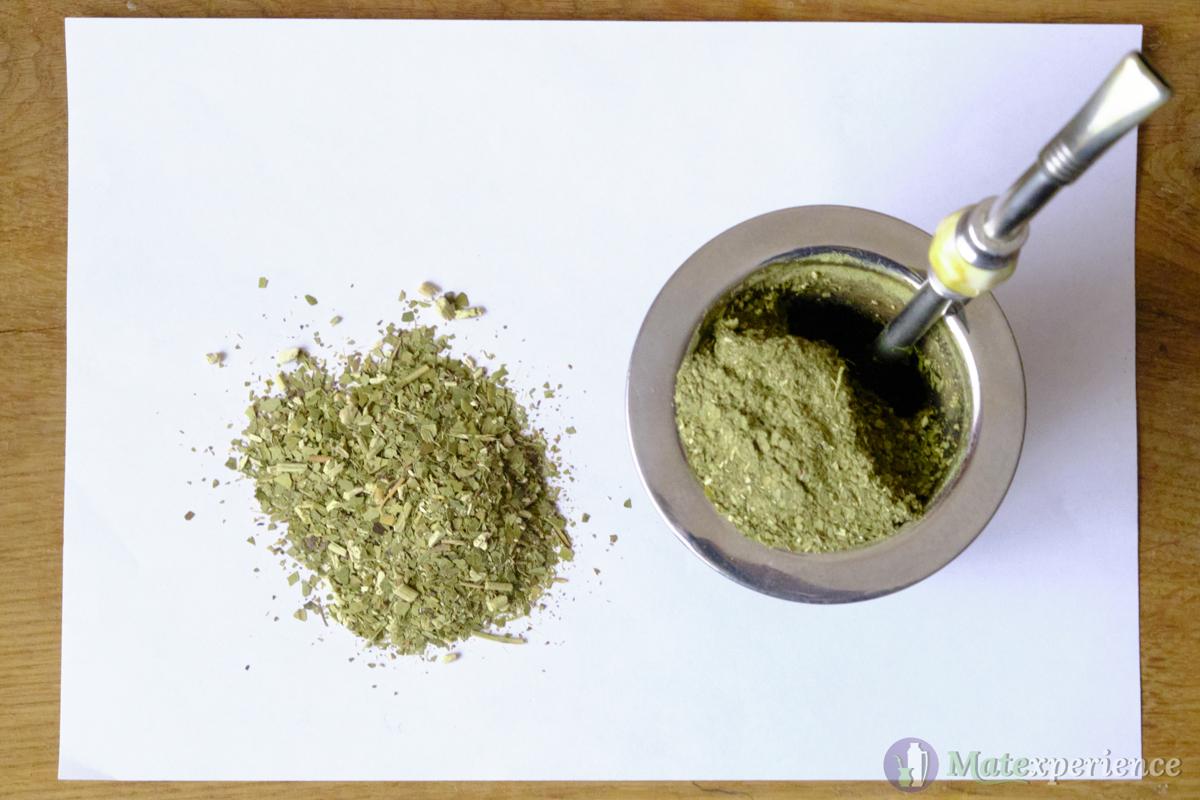Short answer:
Mate is pronounced [MAH-teh]. Yerba mate is pronounced [YER-bah MAH-teh] in English and Castilian Spanish, or [SHER-bah MAH-teh] in Rioplatense Spanish. Erva mate is pronounced [ER-vah MAH-tshee]. Chimarrão is pronounced [she-muh-HOW].
My cookies options
These cookies are used to provide you with a more personalized experience on our website and to remember choices you make when you use our website.
For example, we may use functionality cookies to enable commenting functionality.
These cookies are used to collect information to analyze the traffic to our website and how visitors are using our website.
For example, these cookies may track things such as how long you spend on the website or the pages you visit which helps us to understand how we can improve our website site for you.
The information collected through these statistics and performance cookies do not identify any individual visitor.
Read more about exact cookies we use in our Privacy Policy
Published on
4 minutes to read

For many people from English-speaking countries who are new to mate, yerba mate, erva mate and chimarrão, pronunciation of this lingo may be challenging because it does not always follow the typical pronunciation rules of English language. Yerba mate is an integral part of South American culture, where Spanish and Portuguese are the two main languages. So the most important thing to understand is that when we’re adopting the terminology from those languages we need to use the pronunciation of the region of origin of the given term in order to differentiate it from similarly spelled but not similarly pronounced words in English and be understood by fellow materos from South America and the rest of the world, no matter the language.
Mate is a Spanish word that means both drink and the vessel, and comes from the Quechua word mati for the calabash gourd used to make it. The correct way to pronounce is [MAH-teh], with an emphasis on the first syllable.
There are a few common mistakes when it comes to the word mate that I see most oftenly. Probably the most confusing thing for majority of people is that English language already has the word mate, which usually has one of the few meanings:
According to the rules of pronunciation in English language, the letter A is pronounced as [ei] if it’s part of the open syllable, so the word mate is pronounced as [meit] when it’s meant one of the aforementioned things, but it is an incorrect pronunciation when we’re talking about the drink.
Another common thing that confuses people even more, is that oftenly, in order to accentuate the difference between the English mate and the Spanish mate, people spell it with an acute E at the end of the word, like so: maté. In my opinion this is not only unnecessary, because you can understand the subject from the context, but also is discombobulating, because it makes you want to put the emphasis on the last syllable and pronounce it [mah-TEH], which creates a totally different meaning and translates from Spanish as “I killed”.
The name given to the plant in the Guaraní, language of the indigenous people who first used mate, is ka’a, which has the same meaning as herb, or hierba in Spanish. Combined with a previously mentioned Quechua word mati, it formed a collocation that meant gourd herb, i.e. the herb one drinks from a gourd. As the Spanish language in South America evolved throughout history, the word yerba eventually derived from hierba, to be used exclusively to describe ilex paraguariensis plant.
When it comes to pronunciation of yerba mate, there are few correct ways to pronounce it. The most common way is to use the Castilian Spanish way of pronunciation — [YER-bah MAH-teh].
However, in Argentina and Uruguay people speak in Rioplatense dialect of Spanish, which has a different phonology compared to Castilian Spanish, most notably substituting yeísmo for the so called sheísmo, meaning that letters ll and y are pronounced as [she] or even [zhe], instead of [ye]. So, a local Argentine or Uruguayan person will pronounce yerba mate as [SHER-bah MAH-teh] or [ZHER-bah MAH-teh]. Take a look at this video, where Uruguayan football player Lucas Torreira pronounces yerba mate in a Rioplatense Spanish:
Erva mate, which is the Portuguese name for ilex paraguariensis, is used to describe Brazilian, raw, green and very fine yerba mate. Because of the Brazilian Portuguese origin, it is pronounced differently to English and Spanish — [ER-vah MAH-tshee].
Chimarrão refers to an infusion made from erva mate, which is basically a Brazilian mate. The etymology of the word chimarrão is related to a Spanish mate cimarrón, which literally translates as a feral mate, meaning an unsweetened mate. In the same fashion as erva mate, the word chimarrão must be pronounced using the Brazilian Portuguese dialect rules — [she-muh-HOW].
***
Hopefully, if you had any struggles with pronunciation of yerba mate lingo we’ve cleared it all up! If mate, yerba mate, erva mate and chimarrão are still new and confusing to you, it is a great time to explore them in more detail by trying and tasting it for yourself. You can start by reading some reviews, especially for more exotic Brazilian erva mates, and don’t forget about our Glossary that is available as an interactive popup for terms with dotted underline or as a separate set of pages.
As always I would love to hear from your unique point of view. Where are you from? What language do you speak? How do people pronounce mate in your country?
Mate
Yerba mate
Erva mate
Chimarrão
Matero